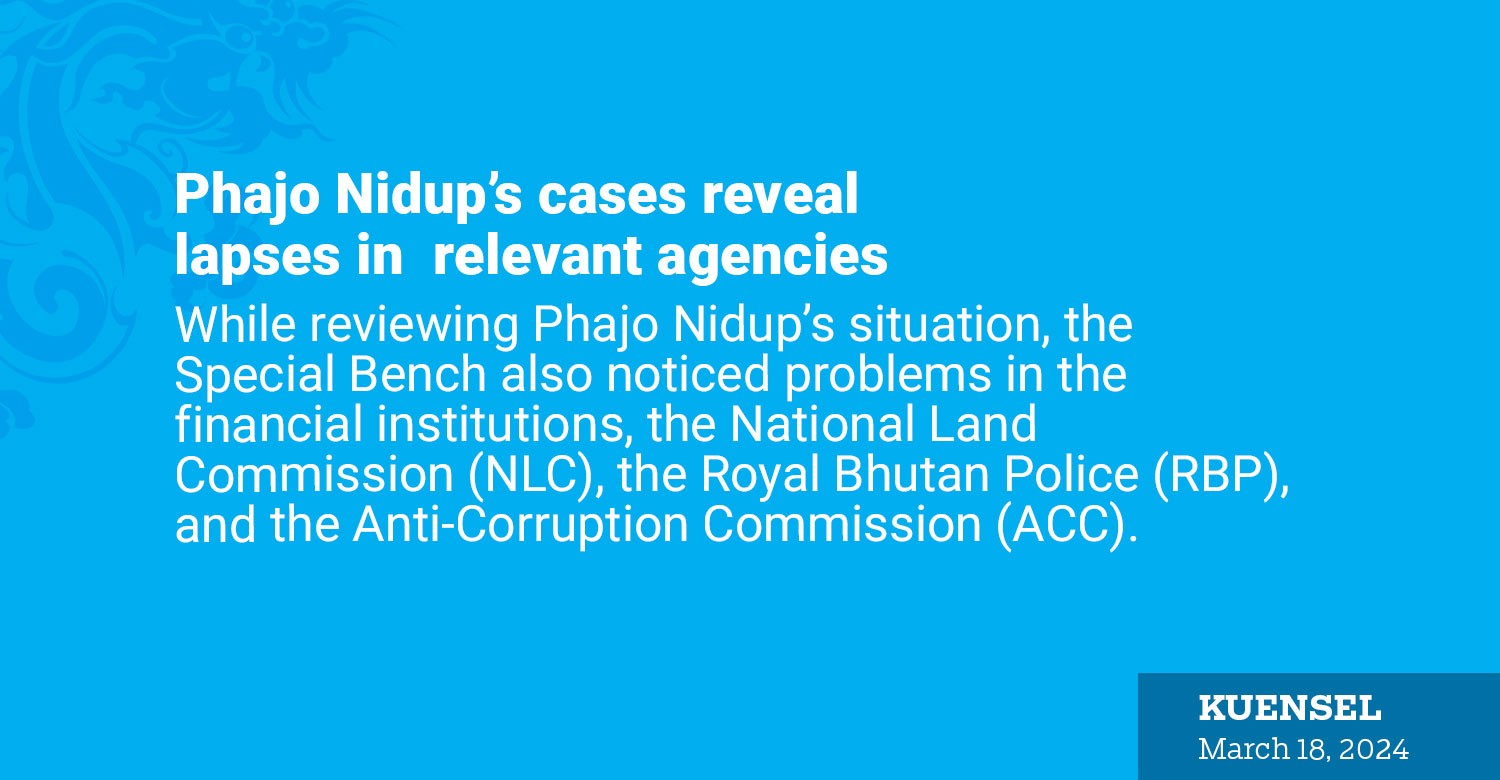Thinley Namgay
While reviewing Phajo Nidup’s situation, the Special Bench also noticed problems in the financial institutions, the National Land Commission (NLC), the Royal Bhutan Police (RBP), and the Anti-Corruption Commission (ACC).
The Bench discovered that financial institutions evaluate the performance of credit officers and regional managers by counting the number of loans they approve in a year.
The Bench emphasises that financial institutions should prioritise the number of loans approved according to their legal rules and manuals. They highlight the urgent requirement for financial institutions to carefully adhere to their credit manuals and policies.
The Bench stressed the importance of having a system of checks and balances in place, starting from the beginning of loan applications to when they are approved, and even after they are sanctioned, to ensure proper monitoring.
It was also found that moneylenders or creditors are misusing cheques, so the Office of the Attorney General now has the option to charge the creditors for accomplice liability.
NLC’s staff, especially surveyors, are discovered to be extensively engaged in surveying private lands using government equipment on weekends. Private individuals pay fees and charges directly to the surveyors for these services.
“The Bench expressed concern about whether it is acceptable or ethical for civil servants to provide services for a fee on weekends, especially when these services are typically provided for free during office hours as part of their employment, for which they are already receiving salaries,” the statement reads.
If such practices are permitted, the Bench stated that there should be a clear and functional system in place, including established rates, that surveyors can charge from private individuals. However, if it is not allowed, the Bench asserted that the NLC must instruct its employees to abstain from engaging in such activities.
The Bench has also observed the Royal Bhutan Police’s handling of arrest warrants issued by the court in civil contempt cases, especially concerning judgment enforcement cases.
It was discovered that rather than immediately arresting individuals after issuing an arrest warrant, the Royal Bhutan Police chose to contact the person named in the warrant and ask them to report to the police office or court. This approach further delays the resolution of civil contempt cases.
The Royal Bhutan Police provided arrested individuals with the chance to negotiate and be released upon reaching a settlement between the involved parties, instead of bringing the arrested person directly before the relevant court.
Additionally, the Royal Bhutan Police failed to properly report cases where individuals couldn’t be located to the court, leading to multiple arrest warrants being issued for the same person.
The Bench also noted that there is inconsistency in the procedure followed by the ACC officials when investigating corruption cases.
In certain instances, the accused were arrested and held for investigation before being released on bail. However, in other cases, the accused were neither arrested nor detained, and there was no record of their release as per the documents presented to the court.


